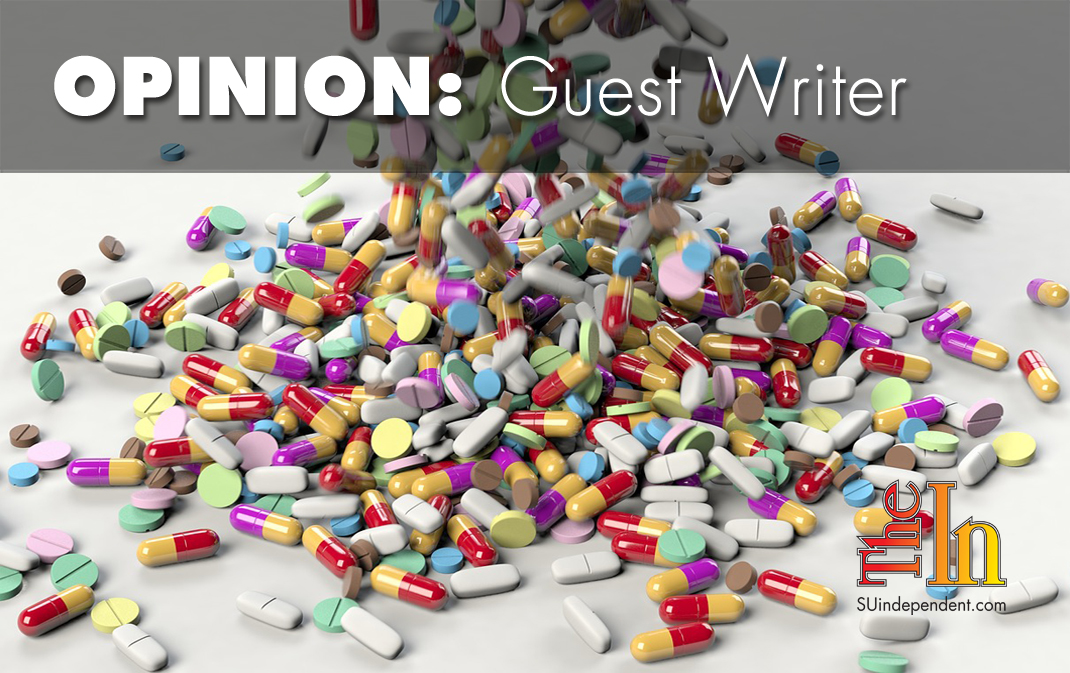
President Trump’s drug plan puts patients first
By Peter J. Pitts
The Trump administration recently unveiled its “American Patients First” strategy to lower patient spending on prescription drugs.
This isn’t the first time the president has taken aim at the nation’s drug spending.
FDA Commissioner Scott Gottlieb previously announced a Drug Competition Action Plan to speed up the approval process for generic drugs. In 2017, the FDA approved a record 1,000 generics. Americans saved nearly $9 billion as a result.
Now, President Trump is narrowing his focus towards pharmacy benefit managers, or PBMs, middlemen who negotiate drug deals between manufacturers and insurers. They determine which drugs are included in insurer formularies and how much patients will spend at the pharmacy counter.
PBMs have tremendous bargaining power. If manufacturers don’t heavily discount and rebate their drugs, PBMs can blacklist their products. This causes manufacturers to slash medicines’ list prices by about one third.
Unfortunately, patients rarely see these discounts; PBMs only pass about 10 percent of rebates to patients. The bulk of the savings are shared with PBMs’ clients or pocketed for profit.
To make matters worse, total savings are kept secret, so no one knows the full extent of their discounts. And over the year, patients have filed numerous class-action lawsuits against PBMs, alleging that the middlemen overcharged them.
The Trump administration wants to bring transparency to the drug supply process. The president was floated the idea of forcing PBMs in the Medicare Part D program to pass a portion of the rebates to Medicare beneficiaries at the point of sale. Patients could save upwards of $19 billion over the next 10-years.
President Trump has also suggested that PBMs should be legally obligated to act as “fiduciaries” to their clients. This would require PBMs to negotiate the best possible deals for their clients as opposed to structuring rebates in a solely self-beneficial way.
The Trump administrated has also proposed axing the pharmacist “gag rule,” a restriction imposed by PBMs and insurers.
In many cases, a patient’s co-pay is higher than the total cost of a drug. A 30-day generic prescription, as one example, might cost just $10, yet the patient faces a $15 co-pay at the pharmacy counter.
Currently, pharmacists are prohibited from informing patients that it’d be cheaper to refrain from using their insurance card and instead pay the $10 directly. American patients spend millions of dollars thanks to this shady practice. Overpayments impacted one in four patients and totaled $135 million in 2013, according to a University of Southern California study.
The president’s plan isn’t flawless. It proposes price caps on Medicare Part B drugs, which include most chemotherapies and other intravenous medications. Price controls discourage researchers from investing in new treatments. In other words, price controls trade short-term savings for patients’ long-term health.
But the American Patients First agenda is mostly full of smart, practical reforms. If implemented, patients will experience lower prices at the pharmacy counter.
Peter J. Pitts, a former FDA associate commissioner, is president of the Center for Medicine in the Public Interest.
The viewpoints expressed above are those of the author and do not necessarily reflect those of The Independent.
How to submit an article, guest opinion piece, or letter to the editor to The Independent
Do you have something to say? Want your voice to be heard by thousands of readers? Send The Independent your letter to the editor or guest opinion piece. All submissions will be considered for publication by our editorial staff. If your letter or editorial is accepted, it will run on suindependent.com, and we’ll promote it through all of our social media channels. We may even decide to include it in our monthly print edition. Just follow our simple submission guidelines and make your voice heard:
—Submissions should be between 300 and 1,500 words.
—Submissions must be sent to editor@infowest.com as a .doc, .docx, .txt, or .rtf file.
—The subject line of the email containing your submission should read “Letter to the editor.”
—Attach your name to both the email and the document file (we don’t run anonymous letters).
—If you have a photo or image you’d like us to use and it’s in .jpg format, at least 1200 X 754 pixels large, and your intellectual property (you own the copyright), feel free to attach it as well, though we reserve the right to choose a different image.
—If you are on Twitter and would like a shout-out when your piece or letter is published, include that in your correspondence and we’ll give you a mention at the time of publication.
Articles related to “President Trump’s drug plan puts patients first”
Injury recovery should include prescriptions plus natural medicines
Let food be thy medicine: Healing my depression, anxiety, and fibromyalgia
Putting drug prices on TV will cause unnecessary patient panic



